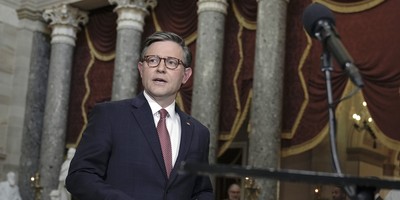The EPA proposal to impose a de facto ban on new coal-fired power plants received more than two million comments from the public - but it looks like it was just one five-page comment from the Energy and Environment Legal Institute (E&E Legal) that sent EPA scrambling back to the drawing board.
The draft rule mandated the use of so-called carbon capture and storage, a technology that would inject carbon dioxide underground but which has so far proved to be little more than a white elephant experiment. To mandate this technology, the law required the EPA to prove it was "adequately demonstrated" and "commercially available." Thanks to E&E Legal, they failed.
Dawn Reeves at Inside EPA broke the story that carbon capture and storage has apparently been dropped from the agency's final rule regulating greenhouse gas emissions. She also, curiously, reports that the White House may not allow the EPA to back down, instead forcing the agency to defend the legally indefensible in court.
But whether they win now or not until the issue is litigated, E&E Legal has scored a huge victory for the rule of law and economic common sense.
I reached out to Chris Horner, their lead author on the comment that carried the day.
"We submitted comments for the record explaining that EPA had made a mockery of the interagency review process, ignoring the government's own experts in order to push an ideological agenda," Horner said.
That's a crucial point because if the EPA is demonstrably not serving as an expert but an ideological actor, it would not warrant deference in court, making its whole global warming agenda vulnerable.
Recommended
E&E Legal obtained information proving that expert analysis from the Department of Energy actually concluded the opposite of what the EPA claimed when they asserted that carbon capture and storage had been "adequately demonstrated."
"The truth is that the experts had persuasively argued the opposite, in effect, that carbon capture and storage has been demonstrated to be not viable," Horner said. "Making this more egregious, the Department of Energy had paid a quarter of a billion taxpayer dollars to learn this information and lesson that EPA ignored and even misrepresented."
The EPA was caught red-handed faking science and ignoring expert opinion, in effect requiring a technology that they knew did not practically exist. It is therefore reasonable to conclude that their actual intended purpose was indeed to impose a de facto ban on coal-fired power plants. And they might have gotten away with it if E&E Legal hadn't busted them.
The stakes are enormous because the rule on new power plants is also the legal predicate for the EPA's proposed rule regulating existing power plants. That rule establishes numerical emissions reduction targets for the states and coerces states to meet those targets by adopting cap-and-trade tax schemes and other policies that EPA cannot impose itself. All to achieve President Obama's goal of fighting global warming by making electricity prices "necessarily skyrocket."
If the EPA cannot, because of this now-exposed legal vulnerability, rely on carbon capture and storage, then the new source numerical targets will have to be revised up significantly, a major victory.
Unfortunately, the political activists who control the EPA see this as only a necessarily tactical retreat, with retooled rules still certain to impose steeply higher prices on consumers for emissions reductions that will have no impact on global carbon dioxide levels or global average temperatures.
That's why Horner hopes that the biggest impact of E&E Legal's depantsing of the EPA on carbon capture and storage, through a transparency campaign that continues regardless of EPA's rumored move, will be to discredit the EPA enough that Congress will step in to put a stop to the misuse of the 1970 Clean Air Act to do all of this. I couldn't agree more.

























Join the conversation as a VIP Member